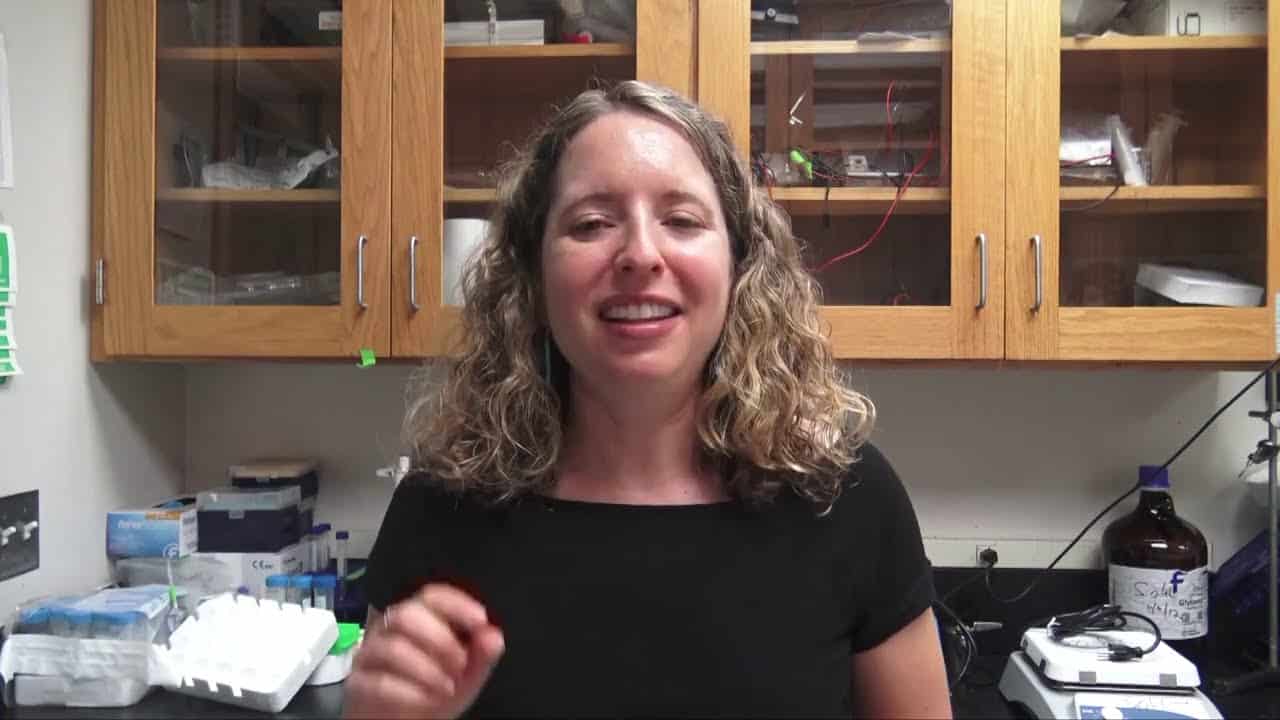*****
Summary of Transcript:
The video discusses precision medicine and how it can target specific tumor drivers in cancer. Using the example of her2-positive breast cancer, the speaker explains how precision medicines can selectively shut down pathways that tumor cells rely on. The video also explores the role of tumor metabolism and the protein isocitrate dehydrogenase (IDH) in driving tumor growth. IDH mutations can lead to a metabolite buildup that promotes tumor formation. The speaker’s lab is studying IDH mutants and trying to develop therapies to shut them down selectively. Ultimately, the goal is to understand better tumor drivers and metabolism to establish more effective precision medicine treatments for cancer patients.
*****
Summary of Description:
Dr. Christal Sohl discusses her research on cancer metabolism and the personal stories that inspire her and other scientists to fight cancer. She explains her journey in scientific research and how she leads a team that explores how metabolic enzymes become altered to drive tumor development and growth. Dr. Sohl explains that understanding how enzymes go “rogue” in cancer can help establish the mechanisms behind tumor formation and identify new drug targets.
*****
Unleashing the Power of Metabolism in Cancer Fighting
Dr. Christal Sohl’s TEDx talk on her groundbreaking research on cancer metabolism is a testament to the power of science in fighting cancer. With impressive academic credentials in biochemistry and pharmacology, Sohl leads a team of brilliant young scientists at San Diego State University, exploring how metabolic enzymes alter to drive tumor development and growth.
In this talk, Dr. Sohl uses easily understood imagery and metaphors to explain the “rogue enzymes” that drive cancer. She equates the central role of enzymes in metabolism to “construction workers” who work tirelessly to build the structures of life. In cancer, however, these “worker enzymes” become dysfunctional, leading to the growth and spread of tumors.
One of the key insights of Dr. Sohl’s research lies in understanding how cancer cells reprogram their metabolism to satisfy the uncontrolled proliferation of the disease. She explains that while healthy cells have a range of metabolic pathways to generate energy, cancer cells depend on several ways, making it easier to target these enzymes and disrupt tumor growth.
What stands out in Dr. Sohl’s talk is her passion and determination to find a cure for this complex disease. Her enthusiasm for science and love for her team of researchers, whom she calls “Soulmates,” is contagious and inspiring. She shares personal stories of patients and friends who have battled cancer and lost, emphasizing the urgency of her work.
In conclusion, Dr. Sohl’s TEDx talk is worth watching for anyone interested in the latest breakthroughs in cancer research. She says, “Cancer doesn’t take a break, and neither should we.” her work is an excellent example of how science can contribute to society by improving human health and quality of life.
*****
Source Description
Dr. Christal Sohl discusses her cutting-edge research on cancer metabolism using easily understood imagery and metaphors while sharing the personal stories that inspire her and other scientists to fight cancer with urgency and determination. Dr. Christal Sohl first fell in love with scientific research as an undergraduate at the University of Oklahoma, where she helped synthesize chemical models of pollution-damaged heme. She then obtained her Ph.D. in Biochemistry at Vanderbilt University, where she studied the molecular mechanisms of a class of drug-metabolizing enzymes called P450s. A postdoctoral fellowship brought Dr. Sohl to the Department of Pharmacology at Yale University, where she explored treatment strategies against HIV and cancer. In 2015, she joined the Department of Chemistry and Biochemistry faculty at San Diego State University, where she is currently an Assistant Professor. Prof. Sohl leads a bright and diverse “Soulmates” team, exploring how metabolic enzymes alter to drive tumor development and growth. By understanding how enzymes go “rogue” in cancer, we can establish the mechanisms behind tumor formation and identify new drug targets to combat this complex disease. This talk was given at a TEDx event using the TED conference format but independently organized by a local community. Learn more at https://www.ted.com/tedx.



Comments are closed